Gyeongju is a treasure trove of Korean history, with remnants of the Silla dynasty dotted all over the city. Temples, monuments and palaces are all reminders of an era before the rapid wave of technology swept South Korea, so brush off those notepads and geek out on the tales of yesteryear.
Tour Korea’s only historical national park
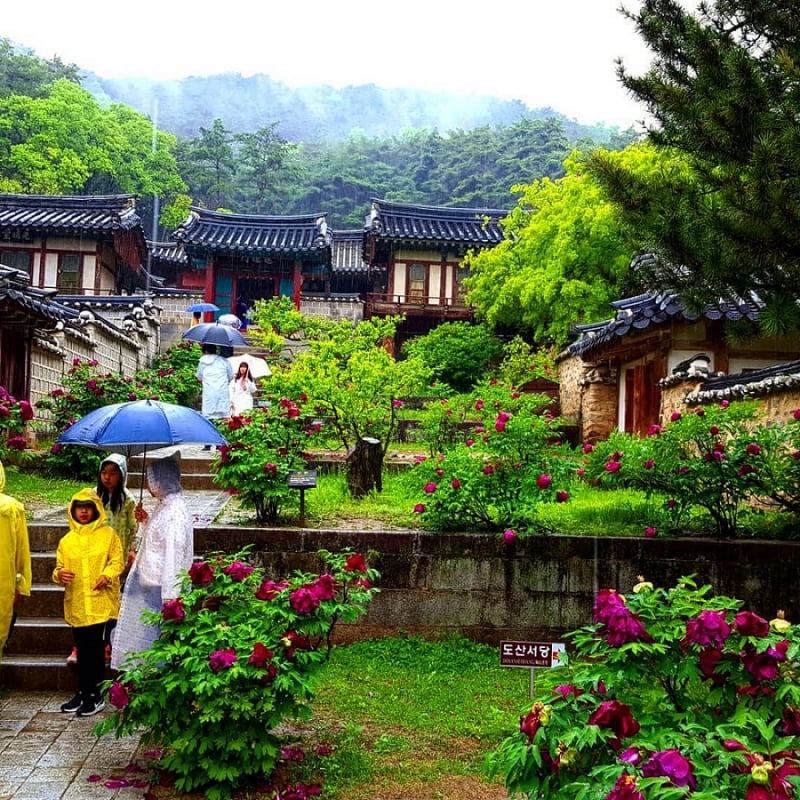
Image credit: Jérémie Thuillier
Korea has many national parks, but only Gyeongju National Park has been afforded historical status for its cultural monuments preserved from the Silla Dynasty. Culture buffs and hiking enthusiasts alike will be appeased as sites like the Samneung Royal Tomb, Mangwolsa Temple and numerous Buddhist statues are located en route to Mount Namsan. Get ready to don those sun hats and slather on the sunscreen as the park spans 137 square kilometres, which means that there’s lots of walking involved.
Sit on the Silla throne
When you consider that much of Bulguksa was destroyed by Japanese forces in 1593, it becomes clear why this Buddhist temple is such a key part of Korean history. Along with the Seokguram Grotto, this monument holds a spot on the UNESCO World Heritage List, and contains seven National Treasures of South Korea. For centuries, Bulkgusa Temple was the seat of the Silla dynasty, making it worth a visit to learn more about an era when the Three Kingdoms reigned supreme.
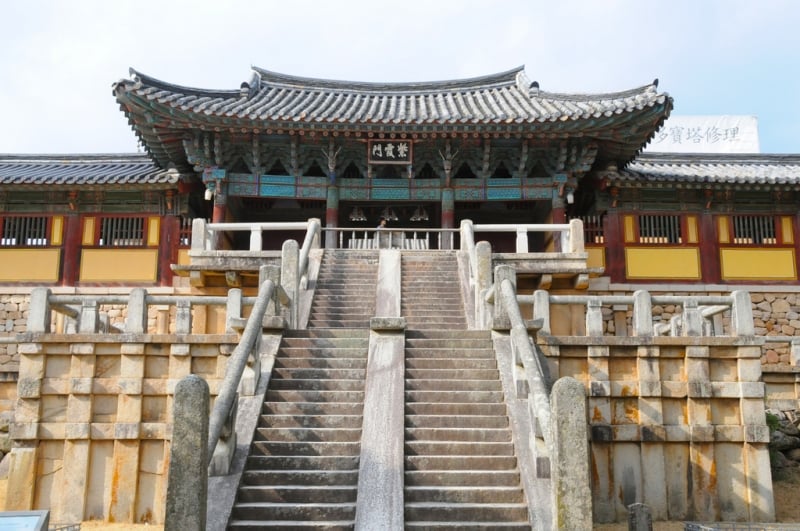
Image credit: Larry Johnson
Devour some side dishes
‘Ssambap’ is a Gyeongju delicacy consisting of various side dishes (banchan) served with meat and rice which are then wrapped up in a leafy green to create a mouthwatering parcel of Korean goodness. The Korean culture means that eating is a sharing affair, so don’t be shy to dip your chopsticks into the various dishes and sample each one. The best place to try this delicious treat is in Ssambap Alley, just outside of Tumuli Park.
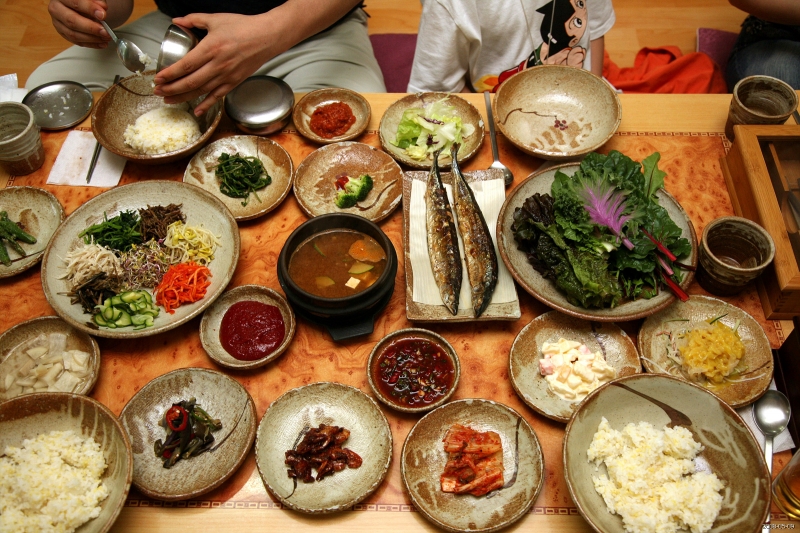
Image credit: Jinho Jung
Wander around Wolji Pond
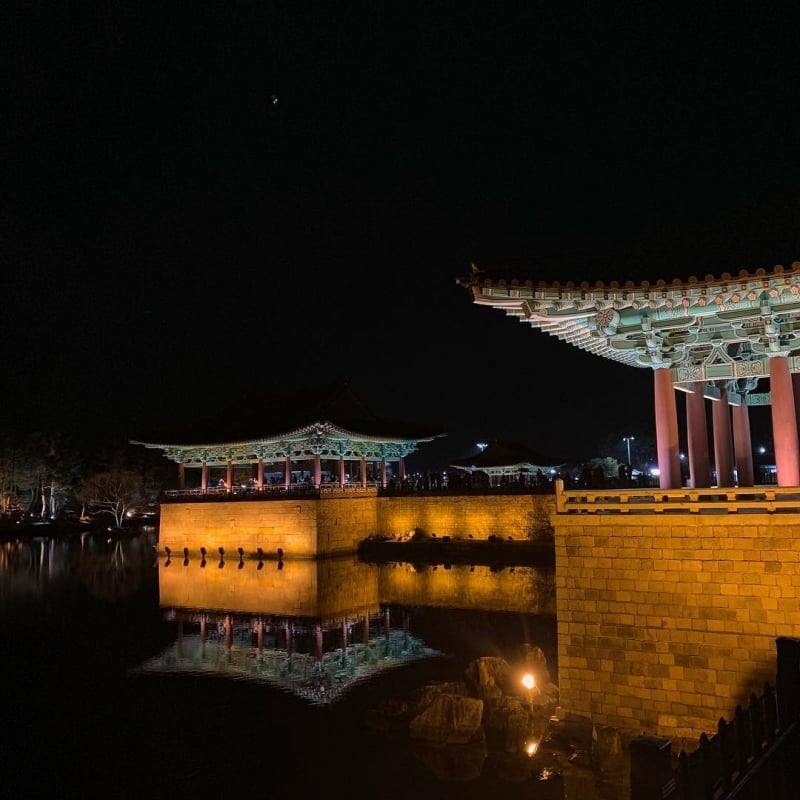
Image credit: Dani
If you’re in search of respite from all your travelling, then Wolji Pond is the place for you. This serene water feature was built as part of the Silla Dynasty’s Donggung Palace, flanked by the impressive pavilions that hark back to King Munmu’s reign. The relics that were found around the Palace are on display to the public, ranging from various jewellery pieces to Buddhist statues. It’s especially beautiful after sunset when the palace lights illuminate the pond waters.
Opening Hours: Daily from 9am to 10pm
Location: 102, Wonhwa-ro, Gyeongju-si, Gyeongsangbuk-do, Gyeongju, South Korea
Explore the tombs of the Silla rulers at Tumuli Park
These are not what you’d imagine to be ordinary tombs; instead, they resemble mounds of earth from the outside which have in fact been hollowed out as resting places for kings from the Silla Dynasty. The most famous of the 23 tombs on display is Cheonmachong, built in the 5th century with the meaning “Heavenly Horse Tomb”. This tomb yielded more than 12,000 artefacts from the Silla era – most of which can now be found in the Gyeongju Museum.
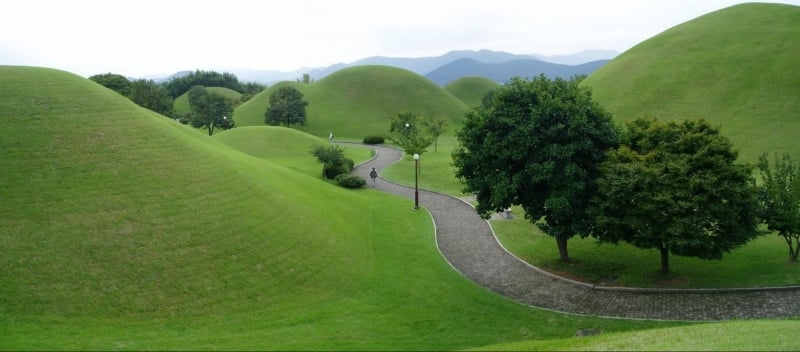
Image credit: Dokaspar via Panoramio
Gyeongju National Museum
This is where you’ll find all the items from famous sites like the Wolji Pond and Tumuli Park. Altogether, the total number of archaeological artefacts from all over Gyeongju tops out at an astounding 30,000. There are various sections to browse such as the Silla History Gallery, the Silla Art Gallery, the Wolji Gallery and the Outdoor Exhibition.
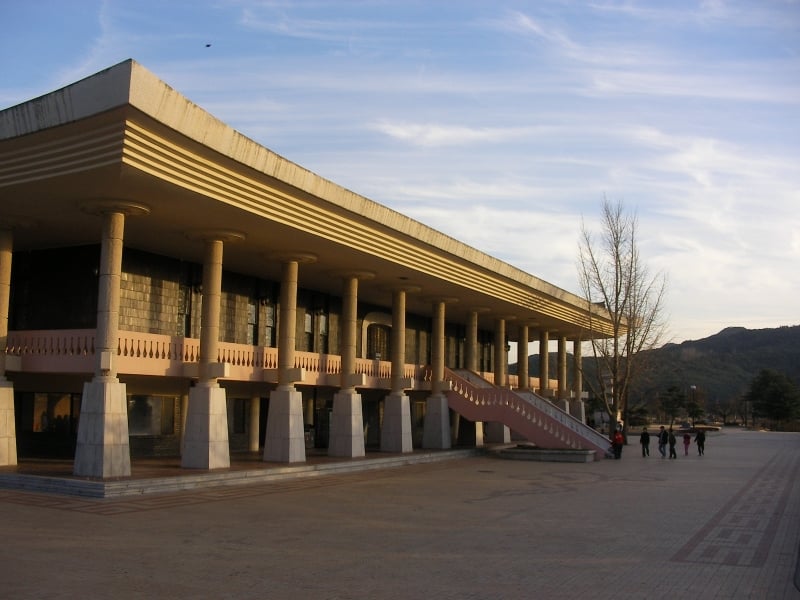
Image credit: martinroell
Seokguram Grotto
Not far from the Bulguksa Temple, on the Tohamsan Mountain, is the Seokguram Grotto. This sanctuary consists of a towering 3.5-metre Bonjon statue inside of a circular hall, first built in 751AD by Kim Dae-Seong during the rule of King Gyeong-Deok. It’s well worth your while to get here for sunrise as the views from the temple are unforgettable. Not to be outdone by Bulguksa, Seokguram is also on the UNESCO World Heritage Site list while also being listed as National Treasure number 24 of South Korea.
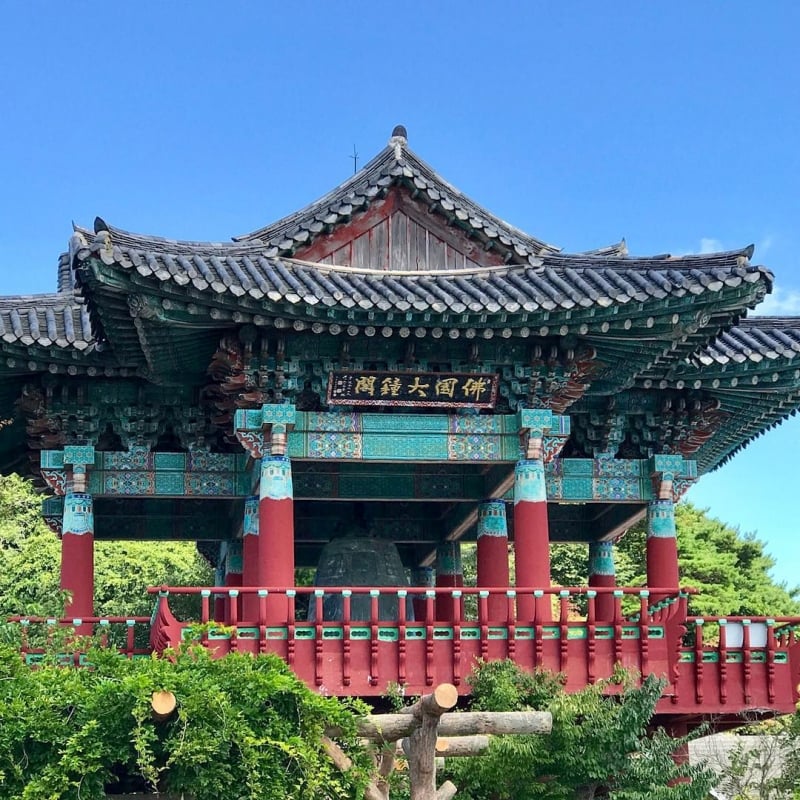
Image credit: @jesolomon





